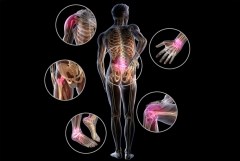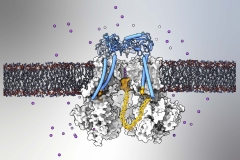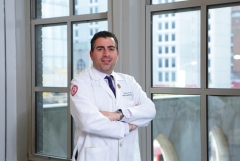People with Crohn’s disease and related joint inflammation linked to immune system dysfunction have distinct gut bacteria or microbiota, with the bacterium Mediterraneibacter gnavus being a potential biomarker, according to new study by Weill Cornell Medicine researchers.
The study, published Feb. 13 in Gut Microbes, also demonstrated that the gut microbiota of people with Crohn’s and axial spondyloarthritis, which is joint inflammation of the spine and lower back, differs from individuals with Crohn’s and peripheral spondyloarthritis affecting other parts of the body like the knees, hips and shoulders.
“While joint inflammation is one of the most common extraintestinal manifestations of Crohn's disease, clinicians don't have a good handle on why this happens and how to treat it,” said the study’s senior author Dr. Randy Longman, director of the Jill Roberts Center for Inflammatory Bowel Disease at Weill Cornell Medicine and NewYork-Presbyterian/Weill Cornell Medical Center and an associate professor of medicine at Weill Cornell Medicine.






